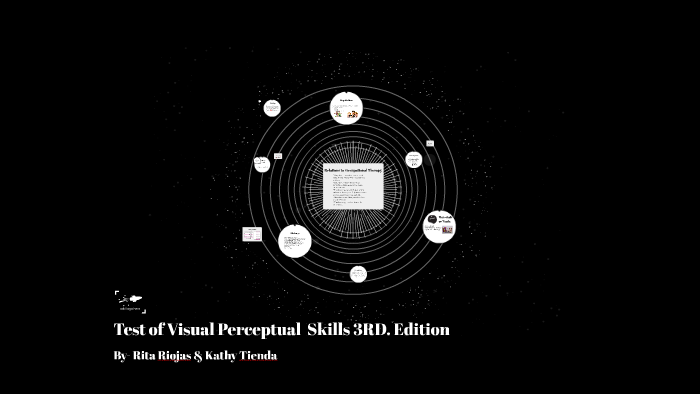
- Test Of Visual-perceptual Skills Third Edition Tvps-3 Study
- Test Of Visual-perceptual Skills Third Edition Tvps-3 Free
- Test Of Visual-perceptual Skills Third Edition Tvps-3 Book
- Test Of Visual Perceptual Skills 3rd Edition
Test Of Visual-perceptual Skills Third Edition Tvps-3 Study
Complete Kit
Test Of Visual-perceptual Skills Third Edition Tvps-3 Free

- Ages 4 through 18 years
- Testing Time 30-40 minutes
- Administration Individual
- This video provides an overview of the TVPS-3 as well as demonstration of the first two subtests for visual discrimination and visual memory.
- 4.4.1.1 Subtest scale scores of the Test of Visual Perceptual Skills - Third Edition (TVPS-3) for mainstream and LSEN groups.57 4.4.1.2 The Test of Visual Perceptual Skills - Third Edition (TVPS-3) subtest z scores.
Occupational Therapists use the Test of Visual Perceptual Processing -3 Edition (TVPS-3) to assess clients with Traumatic Brain Injury (TBI) but encounter difficulties as the test is neither standardised in South Africa, nor for adult clients.
* Qualifications required to purchase this item. Click here to complete the qualifications form.
*DISCONTINUED (see NEW EDITION below Alternatives)

Test Of Visual-perceptual Skills Third Edition Tvps-3 Book
Test Of Visual Perceptual Skills 3rd Edition
Now, just one test covers all of the ages that were previously covered by the two forms of the earlier test (TVPS-R and TVPS-UL-R). The TVPS-3 is used by many professionals, including learning specialists, occupational therapists, optometrists, and rehabilitation specialists.
The TVPS-3 remains an easy to use assessment to determine the visual perceptual strengths and weaknesses of students aged 4-0 through 18-11. Visual perception is an important ability that enables one to make sense out of what is seen (in contrast to visual acuity tests which determine just that something was seen by the individual). The TVPS-3 may be used by a number of different types of professionals: learning specialists, occupational therapists, optometrists, and rehabilitation specialists.
The TVPS-3 utilizes black and white line drawings as stimuli for all of the perceptual tasks; the stimulus plates are bound in a convenient easelstyle booklet. The items are still presented in a multiple-choice format, and responses can be made vocally (by saying the letter of the response choice) or by pointing to the answer choice. This format is ideal for use with students who may have impairments in motor, speech, hearing, neurological, or cognitive functions. There are still 16 plates in each of the perceptual areas so that the length of the test remains the same as in previous editions:
• Visual Discrimination
• Visual Spacial Relationships
• Visual Memory
• Visual Sequential Memory
• Form Constancy
• Figure-Ground
• Visual Closure
Ceilings ensure that the more difficult items do not unduly tax younger students, yet enable the examiner to obtain a reliable and accurate measurement of the students’ abilities at all ages.
By analyzing the subtest score patterns, the examiner can make functional comparisons of the child’s abilities and provide a basis for planning the appropriate remediation. The manual contains an updated review of literature, thus, relating the importance of visual perceptual ability to the tasks a child faces in both school and home settings. The TVPS-3 also provides new, nationally stratified norms based on over 2,000 students.
Administration and Scoring
The TVPS-3 is administered to individuals; it is untimed and takes about 25 minutes to complete. Scoring is quick and uncomplicated. Raw scores are reported as scaled scores and percentile ranks for each subtest, the overall total score is reported as a standard score and percentile rank. Age-equivalents are also provided for the subtest and overall scores.